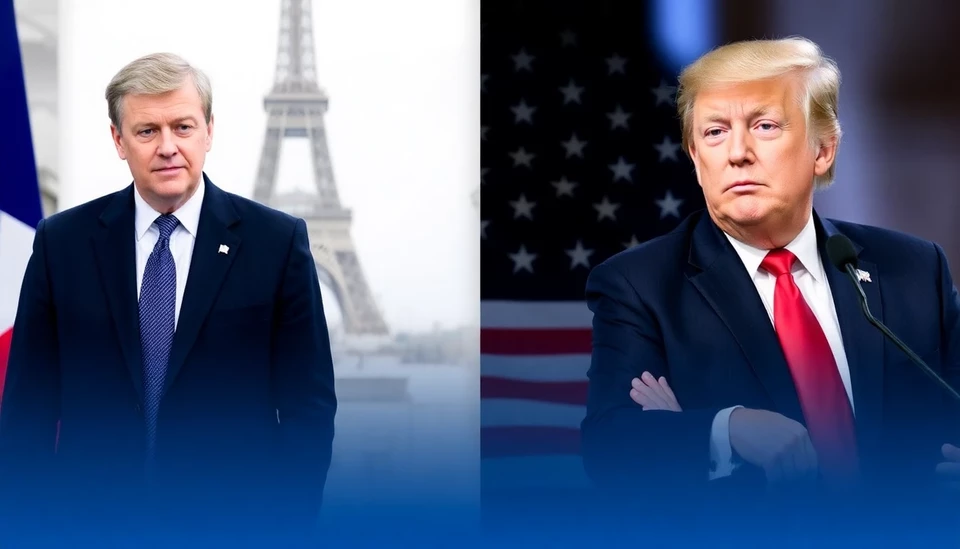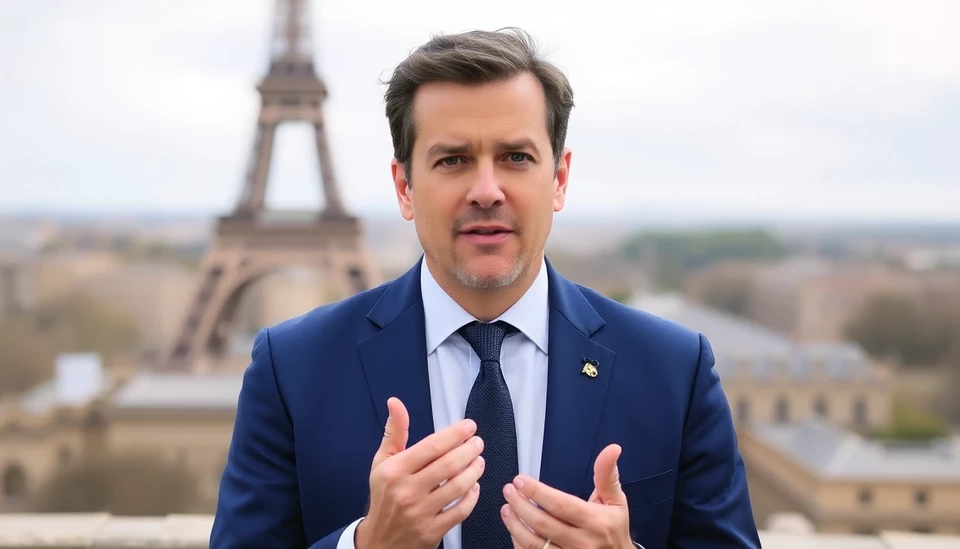
In a notable shift in economic policy, French authorities have indicated a willingness to relax their deficit targets if disruptions from escalating trade conflicts negatively impact the nation's economy. This announcement comes amid growing concerns that increasing tariffs and trade barriers could stifle economic growth across Europe.
Finance Minister Bruno Le Maire underscored this sentiment at a recent press conference, where he stated that France must remain pragmatic in its fiscal approach, particularly as external conditions evolve. “We must be ready to adjust our budgetary goals if the global economic environment deteriorates due to trade wars,” Le Maire emphasized, addressing the vulnerabilities France could face amid rising global tensions.
The backdrop to this declaration is a series of trade disputes between major economies, particularly between the United States and China, which have created ripples across the globe. France’s government is cognizant that such conflicts can impede trade flows, disrupt supply chains, and ultimately affect domestic growth. This has led to a re-evaluation of previously set budgetary targets that aimed for a reduction in the public deficit.
The current deficit target stands at 3% of Gross Domestic Product (GDP), as mandated by European Union regulations. However, if the trade situation deteriorates, the French government is prepared to exceed this limit, prioritizing economic stability and growth over strict adherence to fiscal metrics. This proactive stance indicates a shift towards a more flexible economic policy framework in light of unpredictable global economic conditions.
French officials are not alone in their concerns, as other European nations are grappling with similar dilemmas. Many economies are closely monitoring trade developments and what they mean for their fiscal strategies. The expectation is that France may not be the only country willing to adjust its economic targets amid mounting international tensions.
As the situation continues to evolve, experts and economists will be watching France’s fiscal trajectory closely. This flexibility could provide the country with the necessary room to maneuver economically, ensuring that it can weather potential downturns resulting from ongoing trade skirmishes.
This announcement from France highlights the broader implications of international trade relationships and the need for nations to adapt to changing global circumstances. As discussions around tariffs and trade policies persist, the French government's readiness to adjust its fiscal goals underscores the interconnectedness of the global economy.
In conclusion, France’s willingness to potentially let its deficit goals slip in response to trade wars demonstrates a commitment to maintaining economic health over rigid fiscal discipline, a strategy that could be adopted by other nations facing similar challenges.
#France #Economy #TradeWar #FiscalPolicy #BrunoLeMaire #EconomicGrowth
Author: Rachel Greene




